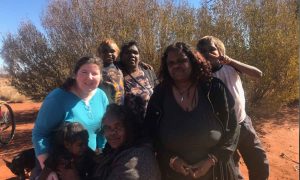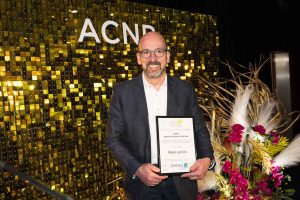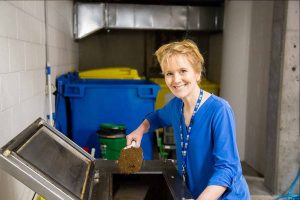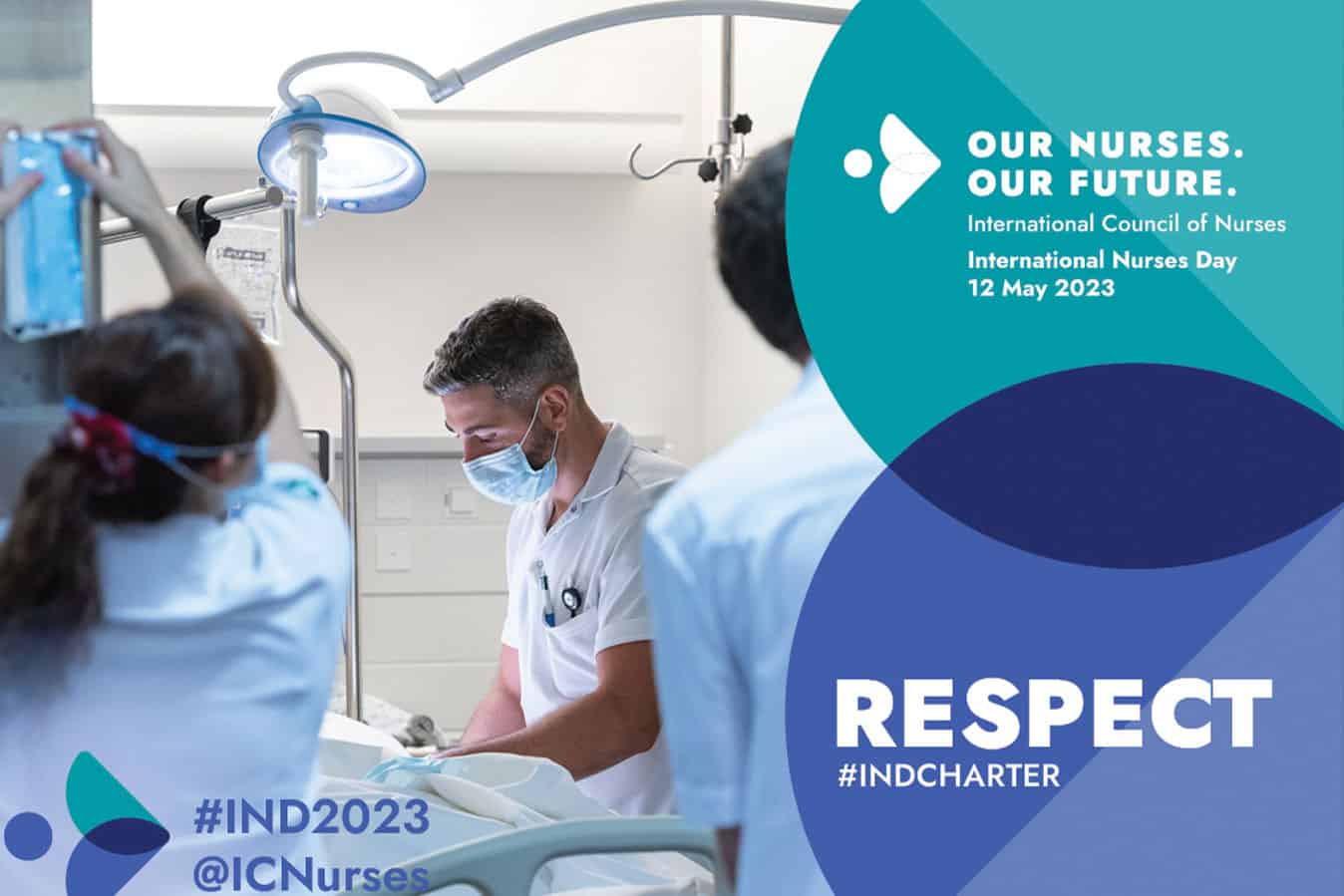Each year, the International Council of Nurses (ICN) lead global celebrations for International Nurses Day (12 May).
ICN’s theme for IND 2023 is: Our Nurses. Our Future, with ICN looking ahead to the future in order to address global health challenges and improve health for all.
To celebrate International Nurses Day, the ANMJ shines the spotlight on inspirational nurses making a difference across the country.
Lynette Byers, Clinical Nurse Consultant with Nganampa Health Council in the APY Lands, SA
For over two decades, Lynette Byers has worked across remote Aboriginal communities in central Australia as a Nurse Practitioner, remote area nurse (RAN) and registered midwife, to improve health.
“It’s the broadest scope of practice that you’ll ever have,” says Lynette.
“I look after patients from birth. I look after babies that are born unexpectedly, right through to palliative care patients that are dying. You have to look after people across the lifespan and be creative and innovative.”

Nganampa Health Council runs six clinics, all on remote Aboriginal land. Lynette travels from clinic to clinic as needed, the closest a four-hour drive. In this unique role, limited supplies and medicines, and the often-unpredictable weather, pose a constant challenge.
“This is the sickest population in Australia, the remote Aboriginal population, and they are entitled to the best care we can give. Therefore, we want really good health workers working out here; we want nurses, Aboriginal health workers, and doctors at the top of the tree.”
For Lynette, recipient of the 2022 Aurora Award as CRANAplus’ Remote and Isolated Health Professional of the Year, the ongoing challenge continues to drive her work and advocacy to improve remote healthcare.
Her advice to the future generation of nurses and midwives looking to work out bush is to hone up on their history taking and physical assessment skills.
“It’s not all about emergencies. The bulk of our work is really about being able to take a good history and examination to work out what is wrong with the person and what they need.”
Peter Jenkin, Specialist Palliative Care Nurse Practitioner
Peter Jenkin was the first Specialist Palliative Care Nurse Practitioner employed by an aged care provider, Resthaven, in Australia.
His role aimed to improve or maintain the quality of life of residents through the prevention and relief of suffering using an innovative model of care. Underpinning it was appropriate advanced care planning, improved processes for end-of-life care, and recognising the signs of early deterioration.
“We were able to demonstrate that the quality of end-of-life care from the perspective of families and residents was overwhelmingly positive. Importantly, the symptom management reduced presentations to hospital and emergency departments in the last weeks and months of life.”
Peter, who recently moved to the ACT to work in a similar role across Calvary’s residential aged care facilities, has been involved in clinical, research and education roles within palliative care for more than 25 years.

He suggests his advanced scope as an NP has allowed him to make a real difference in aged care by providing timely access to healthcare for residents, along with mentoring staff.
“I always try and emphasise the fact that I’m a nurse, I’m a specialist nurse who has some added skills; I’m not a mini doctor. I bring my knowledge and expertise and the art of nursing to what I do first,” says Peter.
“This is intimate work, it’s physically hard work, and it’s psychologically and emotionally difficult but also very rewarding. You need skills to engage with people at their most vulnerable times and the education around aged care and palliative care is still substandard.”
On top of his work with Resthaven, Peter has been instrumental during the COVID-19 pandemic, where he was an active member of the National COVID-19 Clinical Evidence Taskforce: Care of Older People and Palliative Care expert panel. He was responsible for two national webinars early in the pandemic, giving practical advice for aged and palliative care frontline staff to plan for the potentially devastating effects of COVID in residential and community settings.
“It is incredibly rewarding work. I’ve never felt depressed from it. I have on many occasions felt terribly sad, and that’s ok. We’re all going to die, it’s going to happen for everyone and I think the more we can talk about death and dying the less scary it becomes.”
Roslyn Morgan, Environmental Health Officer, ANMF (Victorian Branch)
Roslyn Morgan’s awareness and passion for creating opportunities for sustainable healthcare practices traces back to working as a nurse on the ICU ward.
“We recycle at home, we should recycle at work. What can we recycle at work?” she recalls thinking.
“That was the platform from which my awareness and engagement grew.”
Back then, in 2007, information, resources and support for health and environmental sustainability was limited. Yet, as she became more conscious of the links between healthcare and the environment, Roslyn began making gradual changes on her ward, like waste recycling.
Her sustainability and activism eventually led to taking up her current role as Environmental Health Officer with the ANMF (Vic Branch).
More than a decade ago, at the 2012 Delegates’ Conference, members passed a resolution calling on their union to become more involved in environmental sustainability and climate change action.
The branch acted swiftly, implementing a host of initiatives in under a year. They included establishing an Environment Committee and joining Global Green and Healthy Hospitals, an international network of hospitals, healthcare facilities, systems and organisations dedicated to reducing their environmental footprint.
By 2013, the first ANMF (Vic Branch) Health and Environmental Sustainability Conference was held.

“I looked around that room and there were 150 people and I went, ‘I’m not alone’.”
As the branch’s Environmental Health Officer, Roslyn leads a variety of internal and external projects geared towards improving sustainability in healthcare.
For members, her work includes building an ever-growing suite of supportive resources and opportunities to help them take action in the workplace via a one-stop-shop that sits on the ANMF (Vic Branch) website. These include a Green nurses and midwives Facebook group to share ideas and connect health professionals passionate about sustainability in healthcare; online CPD that teaches members how to start a Green Team in their workplace; and Nursing for the Environment – Intensive, a practical course designed to strengthen advocacy and leadership around climate mitigation and environmentally sustainable workplace practice.
Collectively, Roslyn says the aim is to provide support, resources and education to drive cultural change and make environmental sustainability part of “business as usual” in the workplace.
“We give them a platform and applaud their work and that gives other members ideas of what they can take back to their workplaces. It’s part of that cultural shift and a better way of doing things where you can still deliver the same quality of care but with that lower emissions profile.”








